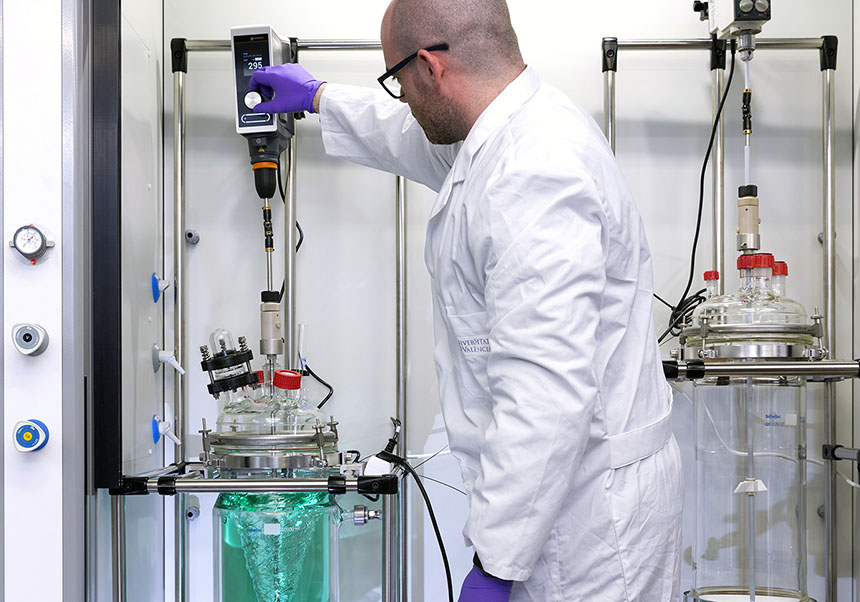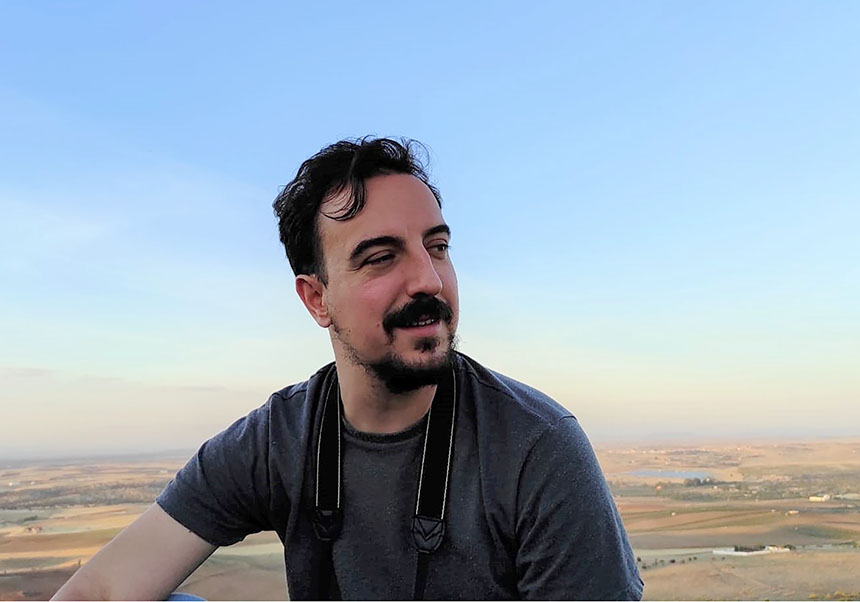Lucía Almagro advises: "Disseminating without falling into simplifications is key to effective science communication"
- Marketing and Communication Service
- Cristina Soriano Cabellos
- March 27th, 2024
Lucía Almagro, biotechnologist and renowned science communicator under the pseudonym @diariodeunacientifica on social media, shared her approach to communication related to viruses and infections. The interview took place during the Second Virology Congress of the Universitat de València held recently at the Burjassot Campus.

Q- What led you to start "Diary of a scientist" and how do you think it has impacted on the public perception of science?
A- Well, my idea was to transmit to society what scientists do, because everyone knows what a nurse or a massage therapist or any other job does, but people never really know what scientists do in the lab, so my idea was to give visibility to this. And another very important role is to give visibility to the research that is done in Spain, which seems to be undervalued and I think it should be appreciated more.
Q- As a biotechnologist and science communicator, what do you think is the biggest challenge in communicating complex scientific topics to the general public?
A- For me, all of the popular science is a challenge. My idea is always to try not to take information away, but to bring it down. Explaining drugs, how a vaccine works or how cancer develops are very concrete and very technical things, but I always try to use graphics or everyday examples so that the person gets all the information and not always simplify it, that is, that science really gets through as it is.
Q- How do you approach the responsibility of communicating accurate and verified information in an environment where scientific misinformation is common?
A- I feel the weight of science on my shoulders (she jokes). We always try to be aware of what we are communicating. Each topic varies on its sensitivity, but we always approach them being aware that we are speaking in the voice of science. We do not speak as individuals with our own opinion, but always with science in hand and based on scientific evidence, so that in the end we give real visibility to what it does, what science is like, why decisions are made based on it... All these are tools that can help people in their daily lives.
Q- How do you think the pandemic has affected public perception of science and its importance in our lives?
A- Since the pandemic, I think there has been a change, not in everyone, but there are people who perhaps had never been interested in science and because of a basic need for survival at that time decided to take an interest in science to solve their doubts, and now they have kept that interest. At least in my followers I perceive it that way. And they have stayed because they are still interested in it and they have seen that they are capable of understanding it. In the end, that seems to always be the barrier, believing that "I'll never understand it" or "that's only for scientists", and I try to remove that barrier so that people really realise that science is everywhere and can be useful for them.
Q- With the proliferation of misinformation on social media about coronavirus vaccination, how do you think we can effectively address these challenges and promote trust in science? How do you manage this on your profile?
A- By repeating and repeating ad nauseam many things that may be taken for granted, but are not obvious to everyone. You should never assume that everyone knows something, you should always go to the basics, explain everything with logic, with common sense... In the end, science has a reason, it has a thread and if you give people reasons with common sense, they believe it more easily than if you tell them just because, and above all, always supported by scientific evidence. And that means explaining how science works. Eventually, they see that it is a whole, that one thing is supported by the other, and they feel that science is a very useful tool for their daily lives, and they learn to see it where they did not see it before.

Q- Tell us about your contribution to this congress, what were the main aspects you shared with the audience in your lecture?
A- Mainly the tool of dissemination in the specific case of viruses. When communicating virology, you have to take some things into account, because if you say something that they can't understand you can generate fears and insecurities, and this has been very clear with the pandemic. You have to be very careful when communicating these things and always give reassurance.
Q- Do you consider it relevant to organise this type of congress that brings together experts from different disciplines in the field of virology?
A- Yes, especially for students, it is very important because that is what they will encounter in the future. Scientific congresses are something that is very normal among scientists, it is a way for scientists to communicate what we are doing in our laboratories, apart from the articles, but not everything is in the articles. So it is a way for us to get to know each other, to know what one is doing here and the other is doing there, and to work together as a team. At the end of the day, science is all about teamwork, but a team that is global. So it is something that they will always meet and if they start to move soon in these environments, it will be better for them.
Q- From your perspective as a science communicator, do you consider that Virology represents a speciality with solid prospects in the professional world for students who are considering this area of study?
A- I am passionate about viruses, so I don't know if I am very objective in this case. They caught my attention since high school because they are very small entities that are capable of doing great things. And, moreover, at the research level they give us a lot of information, they can provide us with tools to later apply to drugs, as for example in the case of Pilar Domingo with phagotherapy. Viruses are a very big world, where there is still a lot to discover and they also have a lot to contribute to us. I believe that Virology, in addition to the basics of health, also has much more to offer us in other areas. We should not only think of it as something medical, but also as tools that can be used for industry, for the environment, for the environment... There are many opportunities, similar to biotechnology and applied to virology, that can give you tools for other opportunities that are not only medical.
- Visit the website of the Master’s Degree of the UV
File in: Investigació a la UV















